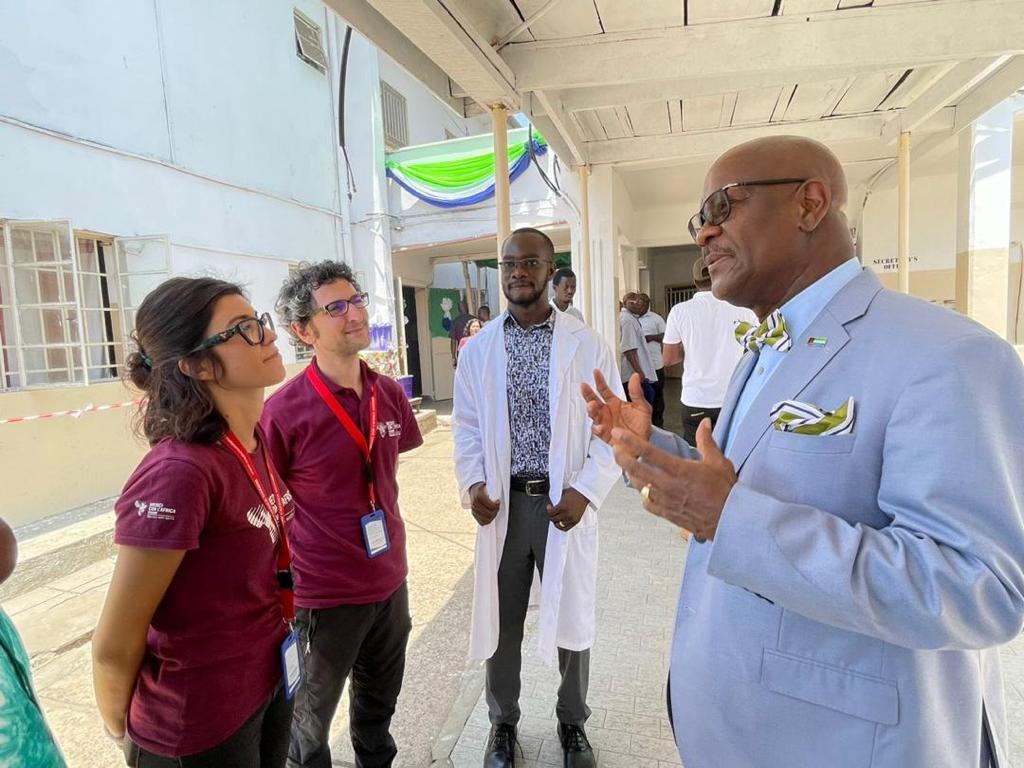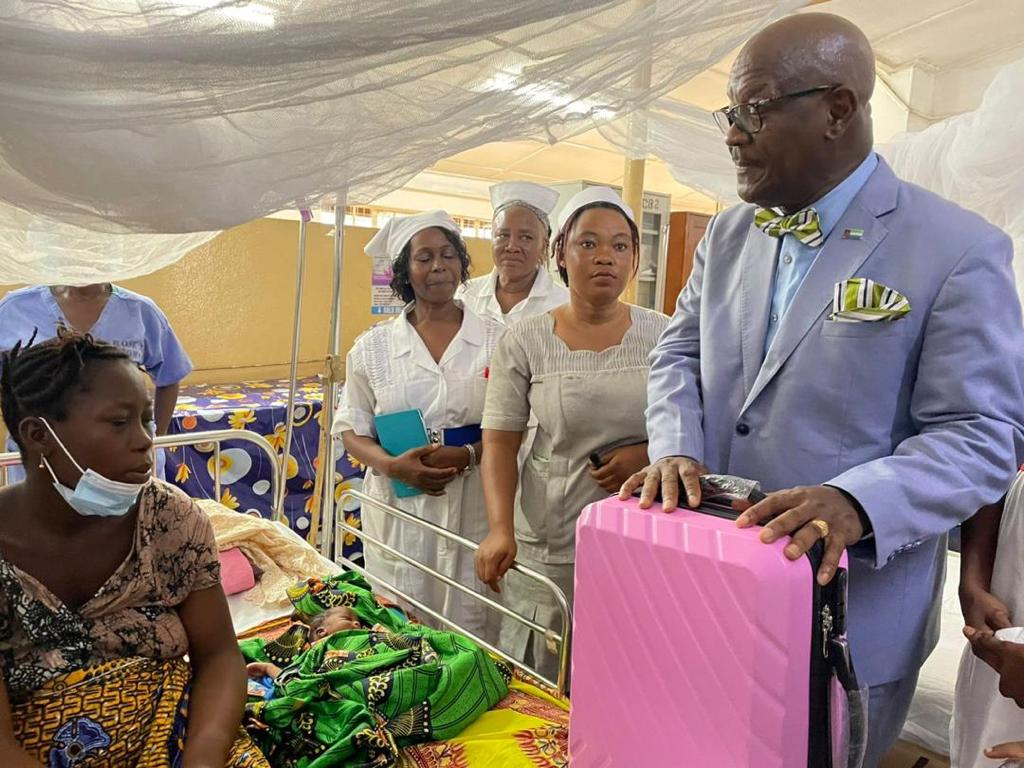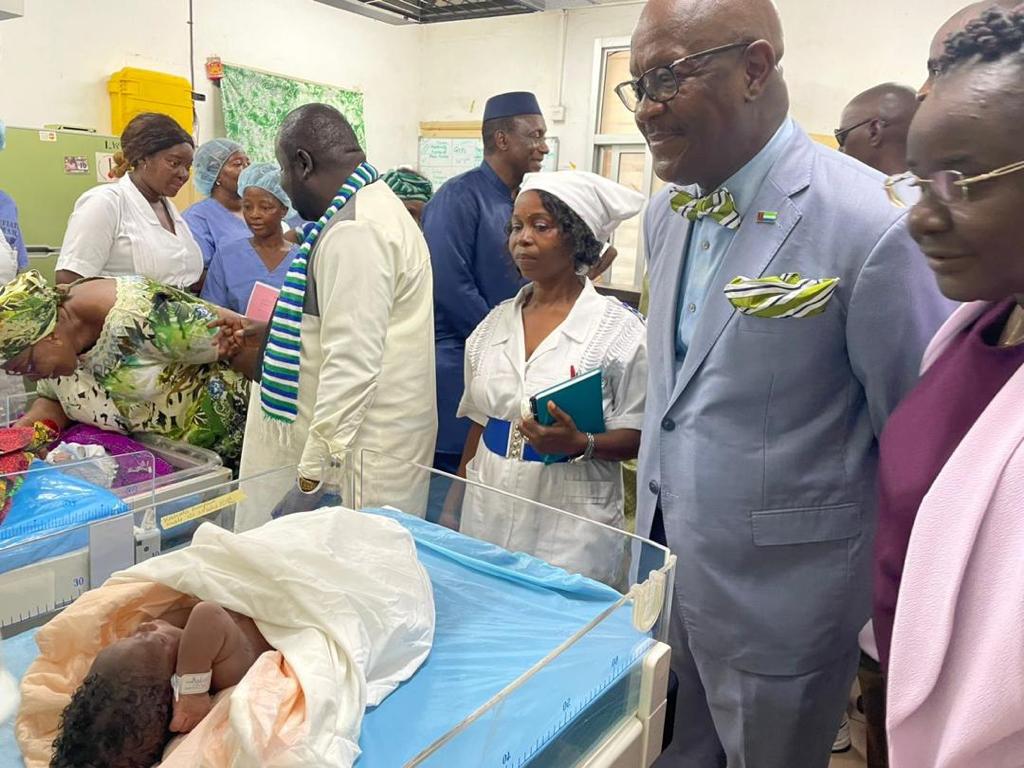An article by Nicolas Kristof was published in The New York Times on June 3, 2023,
discussing Sierra Leone’s healthcare progress. The piece offered a fair assessment of both
challenges and achievements. You can find the article through this link. The Ministry of
Health and Sanitation (MoHS) acknowledges Kristof’s opinion piece, which highlights the
significant progress Sierra Leone has made in healthcare services and outcomes despite its
historical difficulties.
Sierra Leone is shedding its old baggage, waving goodbye to the shadows of civil war and the
haunting memory of Ebola. Today, the country and the Ministry of Health and Sanitation can
proudly trumpet the progress made in healthcare, with significant reductions in child
mortality and deaths related to pregnancy and childbirth. In Kristof’s recent article in The
New York Times, the improved access to health care for expectant mothers and infants takes
the spotlight, and the best part is that most of these healthcare services come with a delightful
price tag of “free.”
While the Ministry of Health and Sanitation in Sierra Leone is undoubtedly making
commendable progress in the field of healthcare, it’s crucial to maintain a balanced
perspective. As highlighted in the article, challenges persist in the realm of maternal and
infant health in the country. However, it is worth noting that there is cause for celebration
amidst these obstacles.
An important development, which unfortunately escaped mention in Kristof’s piece, is the
significant reduction in maternal deaths. According to available data, the Ministry and its
partners have achieved a noteworthy decline in maternal mortality rates from 717 deaths per
100,000 live births (DHS 2019) to 443 deaths per 100,000 live births in 2020 (UN/World
Bank Group Estimates) 1 . This promising statistic reflects the dedication and efforts of
healthcare professionals and policymakers working tirelessly to improve the well-being of
expectant mothers.
To further validate this encouraging progress, a team of consultants from the World Health
Organization (WHO) is currently present in Sierra Leone. Their mission is to thoroughly
assess the reduction in maternal deaths across all sixteen districts of the country and compile
a comprehensive report detailing the various factors contributing to this positive change. By
conducting an in-depth analysis, the WHO consultants aim to provide valuable insights that
can inform future strategies and interventions.
The article showcases significant improvements in areas such as child mortality, pregnancy,
and childbirth. The Ministry, along with its partners, has implemented various initiatives to
enhance the well-being of mothers and infants. The article identifies six key areas that
commend the Ministry for the positive strides taken so far to improve reproductive and child
health outcomes in Sierra Leone.
1 Data released in 2023
First, child mortality rate has witnessed remarkable reductions. Over the past two decades,
the risk of a child dying in Sierra Leone has decreased by more than half, with an astonishing
96 percent of children now surviving into adulthood. This transformative trend reflects the
dedicated efforts of healthcare professionals, policymakers, and various stakeholders
committed to improving the nation’s health outcomes.
Furthermore, Sierra Leone has made great strides in enhancing access to vital healthcare
services for expectant mothers. Prenatal care, childbirth assistance, and contraception are now
more readily available, and the best part is that these essential services are largely provided
free of charge. The Ministry of Health and Sanitation sees this critical shift as important
because it ensures that women have the support and resources necessary to safely navigate
the journey of pregnancy and childbirth.
Another significant aspect of Sierra Leone’s healthcare progress highlighted in Kristof’s
article is the promotion of breastfeeding practices and counselling. The MoHS can confirm
that the emphasis and practice of exclusive breastfeeding practices have contributed to a
reduction in infant mortality rates. By empowering mothers with knowledge and support,
healthcare professionals have played a crucial role in improving the health and survival
chances of newborns.
Upon his appointment the Honourable Minister of Health and Sanitation, Dr. Austin Demby,
prioritised vaccination efforts. Sierra Leone has also taken proactive measures to address
cervical cancer, a devastating disease that is often overlooked. To protect vulnerable girls,
vaccination programmes have been implemented to prevent Human Papillomavirus (HPV),
the main cause of cervical cancer. In addition, low-cost screenings that utilise vinegar to
detect cervical lesions are offered in some clinics, aimed at identifying and addressing
potential health concerns at an early stage.
The efforts to address obstetric fistulas, a devastating condition affecting young women,
deserve commendation. These repairs have allowed affected girls to reclaim their lives,
offering hope and a chance at a brighter future. Over the last five years, the MoHS has
prioritized enhancing care for expectant mothers. As a result, Kristof’s article showcases how
the healthcare system in Sierra Leone is dedicated to improving citizens’ quality of life by
providing timely medical interventions for obstetric fistulas.
According to the concluding statements in The New York Times article, Sierra Leone has
experienced significant improvements in both well-being and reproductive health outcomes.
Although challenges still remain, Kristof emphasizes the importance of recognizing and
appreciating the positive changes happening within the country’s healthcare system. He
acknowledges the joint efforts of the MoHS, their partners, healthcare professionals, and the
resilience of the Sierra Leonean people for contributing to the remarkable progress described
in the article.
Based on the opinion piece in The New York Times, the Ministry of Health and Sanitation
believes it is important to maintain and build upon their past accomplishments. To achieve
this, the Ministry is committed to investing in healthcare infrastructure, retaining and training
skilled healthcare workers, and encouraging community involvement. These initiatives are
crucial to ensuring that Sierra Leone’s healthcare system continues to progress.




